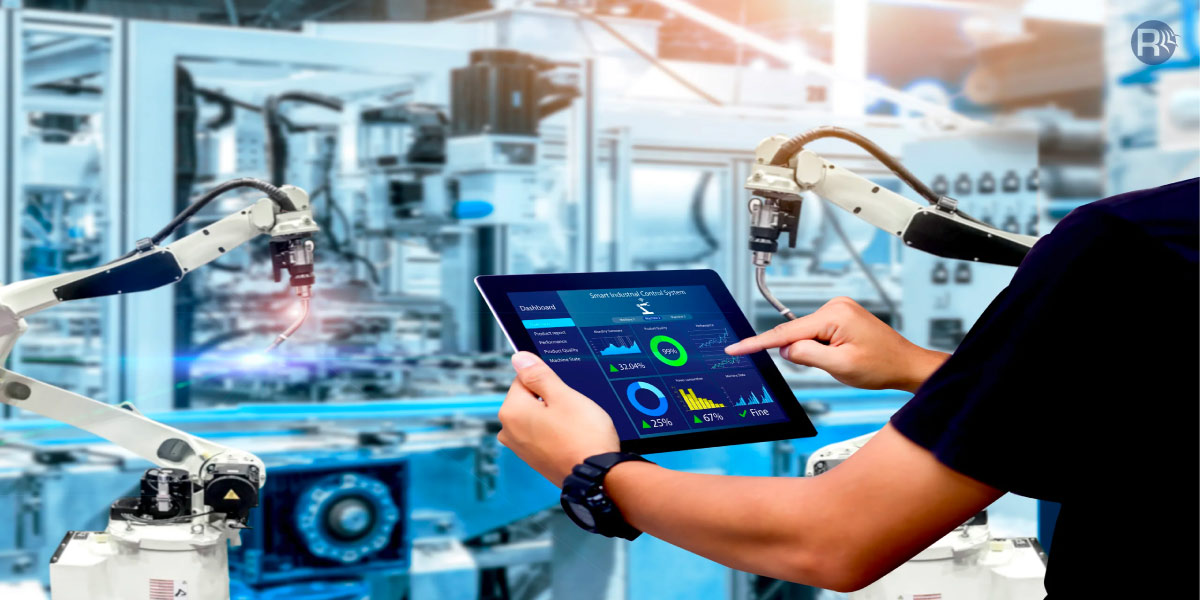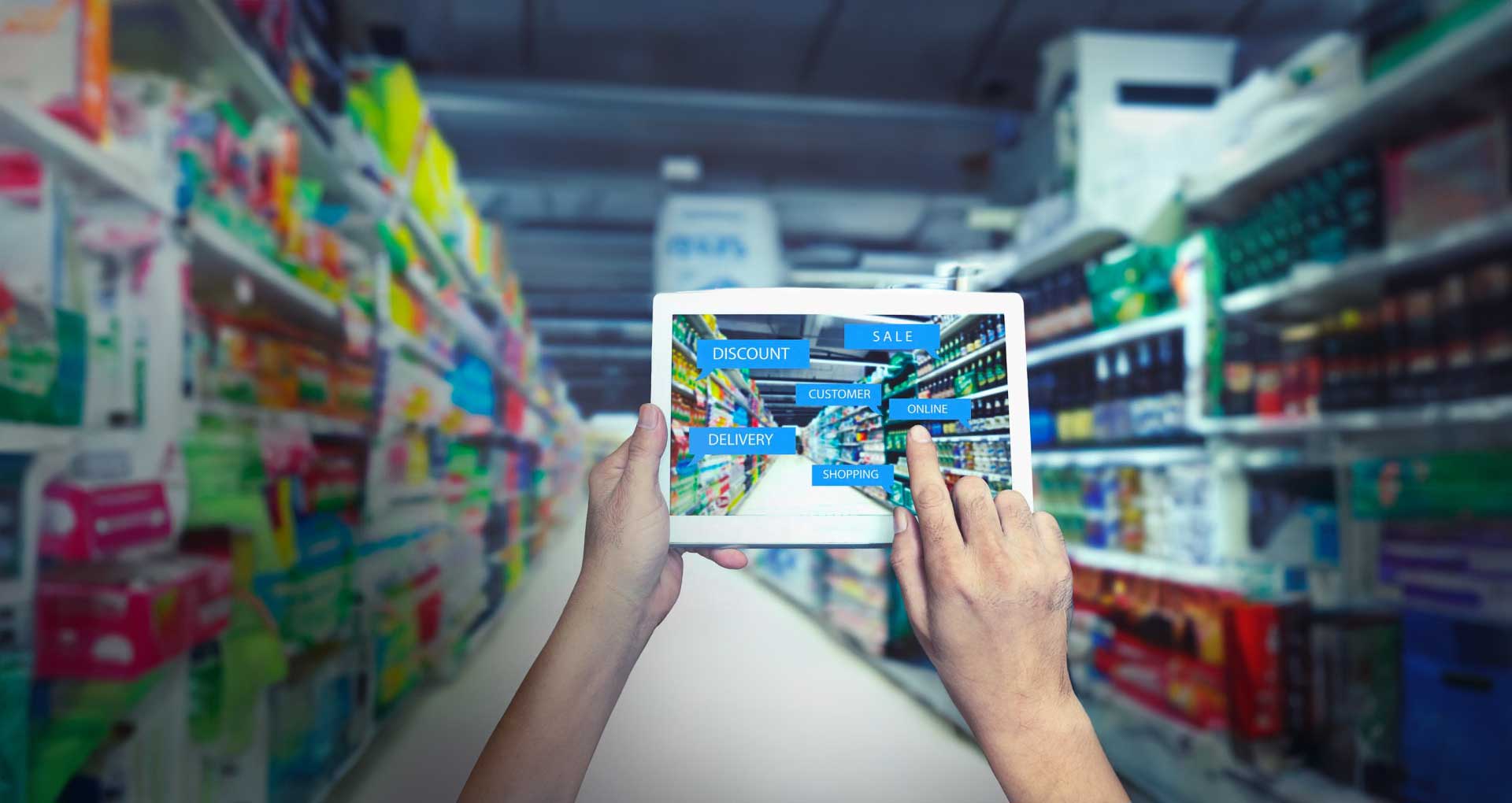IoT or the Internet of Things is one of the hottest trends across industries today. We’re witnessing several businesses embracing it to facilitate digital transformation across levels. For the manufacturing industry that involves the production of a wide range of commodities – IoT has a lot to offer to enable humans and equipment. More recently, various digital technologies have been implemented by the industry that gradually reduces human engagement in the work process.
IoT in the Manufacturing Industry – part of IIoT (Industrial Internet of Things) enables manufacturers to engage smart devices and supportive software platforms. It helps reap the benefits of this connected environment in their ecosystem. And, with the advent of Industry 5.0 – a relatively new concept that aims to combine human intelligence & cognitive computing abilities. It offers a personal human touch to the Industry 4.0 pillars of automation and efficiency.
However, before you make critical business strategy decisions take your time to understand IoT’s growth potential for the manufacturing industry. Through this post, we’ll discuss the trends, use cases & benefits of IoT and how a skilled & experienced technology partner can impact your manufacturing processes & systems. So, let’s get started!
IoT Trends in Manufacturing Industry
- The global IoT in manufacturing is expected to hit around USD 1523.91 billion by 2030, poised to grow at a compound annual growth rate (CAGR) of 24.91% from 2022 to 2030, suggests Precedence Research
- Research & Markets report suggests;
- IoT-based Predictive maintenance is the most-significant application for manufacturing industry as it allows users to know of any impending system malfunction and correct the problem before machines break down.
- Being the most technologically advanced region, North America displays the highest usage of IoT in the manufacturing sector. Considering the high demand for these solutions, vendors are collaborating with industrialists to develop smart production machines.
- Another key driver for the IoT in the manufacturing market is the fact that such solutions improve the inventory management process. By integrating IoT into radiofrequency identification (RFID) scanners, manufacturers can track the inventory from the time of ordering to delivery.
Top IoT Use Cases in Manufacturing Industry

The manufacturing sector is reaping the benefits of several IIoT applications. And with Industry 5.0, new use cases are set to emerge.
Here are some of the interesting examples of IoT applications in the manufacturing sector;
- M2M Automation: Machine-to-Machine Automation helps remotely manage & control the data from equipment. It reads the sensor data & transmits it to the network. IoT systems communicate via sensors & automate decisions like raw material requirements, demand forecasting, etc. Integrating ERP with data helps monitor the manufacturing process & capture insights. It enables remote monitoring, asset tracking & monitoring, product restocking, etc.
- Application of Smart Assets: The combination of IoT sensors, asset tags, and software to track the location and status of assets in real-time offers an ecosystem of interconnected devices, security components, application software, controllers and more. They track and optimize assets at all manufacturing stages from the supply chain to product delivery. They ensure quick and efficient identification of issues that adversely impact product quality or time-to-market. Some examples of intelligent assets in IIoT include digital equipment, plants instrumentation and embedded systems.
- Monitoring Assistance: IoT assets connect systems & machines and help you, a remote manufacturing business owner, to monitor equipment for compliance, safety & reliability. The sensors track production processes & send status notifications. Remote monitoring with IoT-connected assets helps look out for industrial assets. IoT sensors can monitor equipment usage and health, which helps assess performance. Plus, the sensors can also help deploy the service if there are any problems. It helps control quality, optimize inventory & supplement logistics.
- Accurate KPI Performance Visibility: Key Performance Indicators (KPIs) help guide decision-making. And a readily available KPI dashboard can make company prioritize to stay in focus and ensure they are moving on the right track. Manufacturing KPIs like overall equipment efficiency (OEE) and many others help to calculate your factory’s performance and understand it from different perspectives. You can track Overall Process Effectiveness (OPE) and OEE through collected data on machine uptime. IIoT platforms utilize data analytics, compile & contextualize disparate data into interactive dashboards and simplify reports to explain your manufacturing performance. And, the IoT platforms aid to compile and contextualize data into simplified reports and dashboards that can further explain how well a business is performing.
- Efficient Logistics: IoT offers several use cases to help business owners in manufacturing. For instance, you reduce or eliminate risks over transportation, vehicle & staff costs. IoT-led interconnection between devices & systems increases supply chain efficiencies. Autonomous fleet solutions and real-time driver/vehicle performance monitoring reduce damage & insurance payments. You can optimize logistics tasks like monitoring fuel costs & deliveries by leveraging IoT.
Key Benefits of IoT in Manufacturing Industry

The above-listed use cases surely talk about the potential of IoT in manufacturing. And with that many manufacturers are prepared to transform their business. This is because they see definite advantages in implementing industrial IoT in manufacturing. Have a look at some noteworthy IoT benefits in Manufacturing:
- Improved Operational Efficiencies: IoT facilitates informed decision-making by automating data collection via connected devices & systems and accurate data analytics. IIoT applications like real-time & remote monitoring enhance the visibility of shop floor, field operations, supply chain, outsourced operations, etc. They also help identify roadblocks & bottlenecks in manufacturing processes.
- Enhanced Productivity:IIoT devices efficiently handle all repetitive & menial tasks. They free up humans to apply intuition & problem-solving capabilities to handle complex tasks beyond the intelligence of machines. Further, IoT improves productivity by automating several manufacturing processes & providing insights into equipment performance.
- Better Product Quality:Deploying IoT devices to assist humans helps eliminate errors & mistakes, resulting in lesser or no defective items coming off the production line. With fewer defects, your product quality improves. And with enhanced product quality, customer satisfaction & brand reputation scales up.
- Employee Safety: Workplace accidents are common in the manufacturing industry. However, with IoT-based connected devices, you can easily detect potential risks & hazards to improve the safety measures for your employees. For instance, you can utilize smart sensors that can detect the level of air pollution, radiation, heat, noise, etc., and provide alert notifications. Using wearables that track the blood pressure, heart rate, etc., of technicians helps analyze the different body-related anomalies that could prevent them from working.
- Simplified Inventory Management: Manufacturers face the biggest challenge of maintaining sufficient supply on the shelves without running out or overstocking. IoT-based devices like wearables, RFID (radio-frequency identification tags), sensors, etc., provide inventory location, status, and movement data. With 100% real-time visibility into inventories, manufacturers estimate the available material, the work-in-progress, and the arrival time of new material, thereby reducing costs & optimizing the supply chain. Further, with connected devices, you can better identify dependencies within the supply chain & fine-tuning the production cycle.
Understanding the Internet of Things (IoT) trends, use cases & benefits in manufacturing is essential to build your business strategy. However, it’s equally critical how a competent technology partner can turn your vision into reality.
Why Partner with Rishabh Software for IoT in Manufacturing?
Rishabh Software has a two-decade experience with custom software development with a specialized focus on IoT. We offer IoT application development services to manage projects across industries.
Our cross-functional team leverages the right IoT technology stack to develop smart manufacturing solutions. It comprises connectivity technologies (Bluetooth, NFC, WiFi, 4G LTE, 5G), protocols & standards (Beacon, Modbus, BLE, TCP/IP & UDP and more), IoT Platforms (Azure IoT Hub, AWS IoT, Ardunio, NodeMCU, Beacons, ESP 32), Sensors (Temperature, Humidity, Proximity, Pressure, Motion & Velocity, Accelerometers, Optical, Light, Magnetic, Water Quality, Smoke, Chemical, Infrared, Flow & Gas, Acoustics & Noise) with supportive development frameworks & languages (Node.js, Python, Xamarin, Flutter, and more).
Summing Up
The Internet of Things is bound to become an integral part of the future technology landscape in the manufacturing business. By leveraging IoT data, the manufacturers of today can get better insight into their production and supply chain operations, increase demand forecasting, reduce time to market, and improve customer experience. As the applications of IoT are all set to create more trends in the manufacturing industry and transform it further, you will have to incorporate IoT development into your business strategy sooner or later.
However, given the scope and complexity of Industrial IoT efforts, effective IIoT adoption requires careful orchestration across application design and development segments. And, to successfully implement IoT technologies into your business processes, you must work with an experienced IoT consulting and development partner who is aware of the challenges that manufacturers face today. Whenever you plan to do it, ensure that you avail yourself of a competent tech partner like Rishabh Software.







